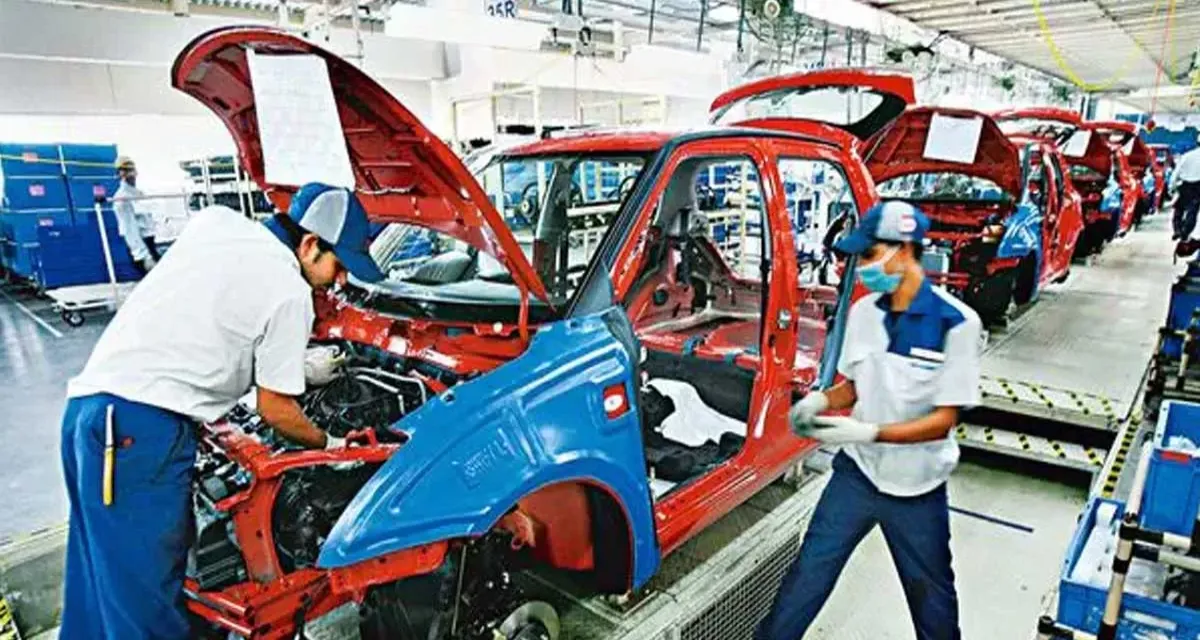

In a revealing update from Maruti Suzuki's annual report for 2023-24, Chairman RC Bhargava has shared insightful perspectives on the evolving automotive landscape, emphasizing the comparative advantages of CNG vehicles over traditional petrol and diesel engines, and outlining the company's future trajectory in the realm of hybrid and electric vehicles.
Bhargava acknowledged that while CNG-powered vehicles offer a more environmentally friendly alternative compared to petrol and diesel models, they fall short when stacked against hybrid vehicles. According to Bhargava, hybrid cars exhibit a significant enhancement in fuel efficiency, boasting improvements of about 35% to 45%. Additionally, these vehicles contribute to a reduction in carbon and greenhouse gas emissions by 25% to 35%, marking a substantial leap forward in eco-friendly automotive technology.
The Maruti Suzuki Chairman articulated a major national objective for the car industry: reducing carbon and greenhouse gas emissions while decreasing dependence on imported fuel. He stressed that the most effective strategy involves offering a range of vehicles equipped with various technologies across different price points. This approach not only caters to diverse consumer needs but also aligns with broader environmental goals.
Looking ahead, Maruti Suzuki is preparing to introduce electric vehicles (EVs) within the coming months. Bhargava emphasized that the success of this transition would heavily depend on the pace of infrastructure development and advancements in technology. He noted that cost reduction in EVs will largely hinge on localizing production and enhancing technology. Despite the anticipated shift towards electric vehicles, Bhargava underscored the importance of promoting a mix of automotive technologies, including strong hybrid technology, CNG, ethanol, and biogas. He cautioned against an over-reliance on pure petrol and diesel vehicles, which are the least efficient in terms of emissions and fuel consumption.
Maruti Suzuki has set an ambitious target of selling approximately 600,000 CNG and hybrid vehicles this year. Bhargava’s remarks highlight the company's commitment to balancing innovation with environmental stewardship. He explained that Maruti Suzuki’s cautious approach to electric vehicle production was a strategic decision aimed at diversifying the company’s technological portfolio. This strategy reflects a broader acceptance by the government and industry stakeholders of the need for a multi-faceted approach to reducing vehicular emissions.
On the topic of ethanol use, Bhargava revealed that Maruti Suzuki is actively working on modifying engines to accommodate petrol blended with 20% ethanol, with the technology available to support higher ethanol blends in the future. This development aligns with the company's broader goals of reducing reliance on fossil fuels and integrating more sustainable alternatives into their vehicle lineup.
Bhargava also addressed the company’s commitment to entry-level cars, despite a growing focus on SUVs and higher-cost vehicles. He reassured that Maruti Suzuki remains dedicated to producing affordable vehicles for the large segment of the population that cannot yet afford premium models. This commitment reflects Maruti Suzuki’s long-standing ethos of aligning its strategies with national priorities and societal needs.
For nearly four decades, Maruti Suzuki has maintained its position as an industry leader, a status Bhargava attributes to the company's consistent efforts to meet the economic and social needs of Indian consumers. The company’s early decision to extend its sales and service network to rural areas and small towns has resulted in approximately 46% of its sales now coming from these regions. This strategic move ensures that individuals in less urbanized areas have access to the same quality of service and facilities as those in metropolitan centers.
In summary, RC Bhargava’s statements provide a comprehensive overview of Maruti Suzuki’s strategy in navigating the evolving automotive industry landscape. His insights underline the company’s proactive approach to environmental sustainability, technological diversification, and unwavering commitment to meeting the needs of all segments of society. As the automotive sector continues to innovate, Maruti Suzuki’s adaptive strategies and forward-thinking policies will play a crucial role in shaping the future of transportation in India.
Also Read: